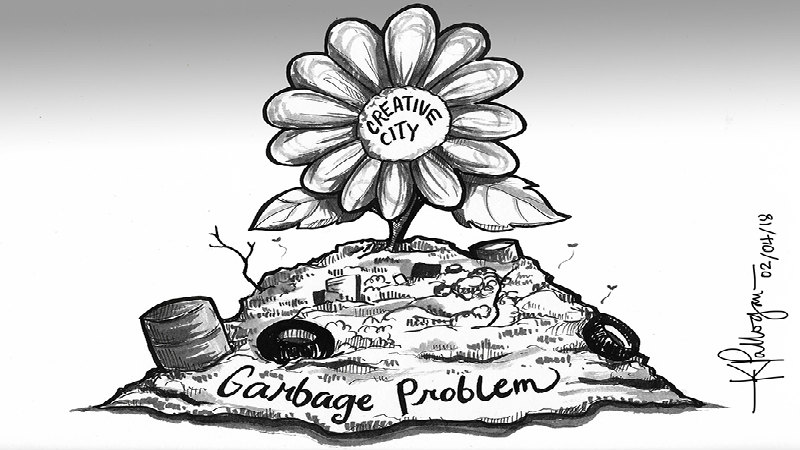Solid waste management involves the processes of generation, collection and disposal. The existing solid waste management issues and concerns confronting most local governments today could be traced to the absence of foresight among the previous and incumbent officials who were supposed to have strictly adhere to the provisions of Republic Act (RA) 9003 or the Ecological Solid Waste Management Act as soon as the law took effect in 2000. The law mandated all local governments to close the operation of their own open dumpsites and work out the establishment of environmentally-friendly disposal facilities, such as controlled dump facilities, engineered sanitary landfills (ESLs), among others, for the ultimate protection of the health of the people and the state of the environment in their areas of jurisdiction.
Practical requirements for the setting up of such facilities include sufficient land area, appropriate solid waste disposal technology, social acceptability of the host community. While there had been initial setbacks in the compliance of local governments to the law, especially these requirements, local officials had not actually been able to impose upon their constituents their compliance to the basic concepts of solid waste management – reduce, recycle, reuse – which would have helped lessen the volume of garbage. Our solid waste problem today could not have been so serious if the residents had been made to embrace the basics of waste management. In generation alone, people have the obligation to segregate their garbage in their households by making sure that only the residuals or non-biodegradable waste are disposed for collection by the local government during scheduled collection dates. During the collection of garbage, the volunteers are still able to get at least 25 percent of the residual waste in the garbage trucks for productive purposes. This is a significant volume of waste is still being taken for the livelihood of some individuals and households. In terms of disposal, the residual waste is compacted by the city’s private hauler to help reduce the volume of waste being hauled out of the city.
City residents alone generate a total volume of approximately 422 tons daily, up from the 402 tons two years ago. Of the said volume, 41 percent is classified as biodegradable while some 58 percent is considered to be non-biodegradable waste. For the city’s alternative disposal system, 30 tons of biodegradable waste is being processed by the city’s two Environmental Recycling System (ERS) machines in Irisan where 8 tons of raw compost fertilizer is produced daily. After all the necessary garbage collection and pre-disposal procedures had been undertaken, some 161 tons of residual waste is now being hauled out of the city daily by its commissioned hauler.
With this volume of waste, a garbage crisis may explode right in our faces. We have ourselves to blame for this present situation of our solid waste management because of our lack of discipline, aggravated by the alleged failure of the concerned government agencies and the local government to operationalize the system right from the start. We have to accept that government was never proactive before in empowering the people to adhere to the basic waste management principles and the rules it made. We residents had been complacent and undisciplined in our the disposal of our garbage. Even to date, there are still unscrupulous residents who dump their garbage in waterways, public places, river easements, among others, just to serve their convenience.
Now, everyone must rise up to the occasion. We should start practicing proper waste disposal right in our homes. Complacency may cost the future generations with a crisis difficult to solve. It is our health and environment that we are thrashing.
We understand the predicament of garbage collectors who have to continuously collect garbage since they do not want us and our city to suffer both as individuals and as a constituency of a city which prides itself as a prime tourist destination. No garbage is small garbage. Every little waste we reduce, recycle, reuse will spell a difference if every household upholds these basic principles of sustainable waste management. Our individual contributions to our garbage situation will greatly help in addressing the existing problem and prevent it from going out of control.
We cannot afford to lose the momentum that the city was able to achieve through the past several years that is why we must be empowered to be responsible and dedicated citizens of the city we really love. REDUCE, RECYCLE, REUSE must be our mantra and let the city deserve its CREATIVE CITY status.














